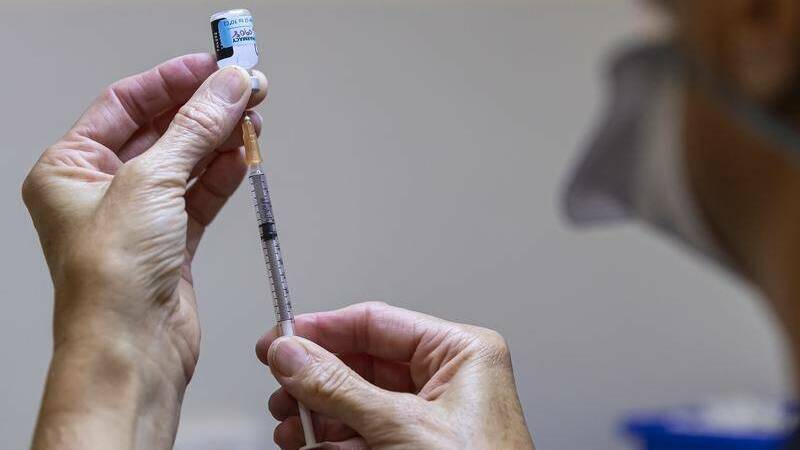
COVID-19 vaccines likely saved nearly 18,000 lives in NSW during the early Omicron era, a new study has found.
Australian researchers simulated vaccination and death rates among people aged 50+ to predict what would have happened without the COVID-19 vaccine rollout in NSW.
They found that 17,760 deaths were likely prevented between August 2021 and July 2022 based on the vaccine program and uptake in NSW only.
A total absence of the vaccination program would have likely resulted in 21,250 deaths, the report found.
That is more than six times the total 3,495 COVID-19 deaths registered in the state, the study found.
"Whilst it can't be ignored that there were missteps, and there are things that could have been done better, it was a significant achievement that in Australia we were able to achieve one of the highest vaccination coverages globally," Deakin University associate professor in epidemiology Hassan Vally said.
Higher death rate for the unvaccinated
The researchers say the study shows the over-representation of unvaccinated people among COVID-19 deaths and how the unvaccinated sub-population drove outbreaks.
Unvaccinated people had a COVID-19 weekly death rate 11.2 times higher than people who had received a booster dose and 7.7 times higher than those who had received two doses in people aged over 50.
"One mistake that vaccine sceptics keep bringing up is that the majority of COVID-related deaths are in those who have been vaccinated - therefore the vaccines do not work, or even cause death," University of South Australia's Professor Adrian Esterman said.
"The authors rightly point out that a fairer comparison is to look at the death rate in those unvaccinated compared to those vaccinated, which immediately shows how important the vaccination program has been in preventing COVID-19-associated deaths."
One mistake that vaccine sceptics keep bringing up is that the majority of COVID-related deaths are in those who have been vaccinated.
- Professor Adrian Esterman
The study also found that the booster program likely saved 1,860 lives.
Limited to NSW
The study was limited to NSW because "access to full official Australian government datasets was not possible despite extensive efforts" and experts believe nationwide data would provide greater insight.
"It would be great to see a similar study from across the country as the experience with COVID-19 was not the same in all states," Mater Health's director of infectious diseases Paul Griffin said.
It would be great to see a similar study from across the country as the experience with COVID-19 was not the same in all states.
- Professor Paul Griffin
Other limitations of the study were that it only mapped people aged over 50 as most COVID-19 deaths occur in this age group.
The study used computer simulations based on recorded mortality rates, and the resulting figures were a conservative prediction, meaning the numbers may have been greater.
"While the benefits of vaccinating for COVID-19 now are likely to have changed somewhat, it will remain an important part of our strategy for managing COVID-19 for the foreseeable future," Professor Griffin said


